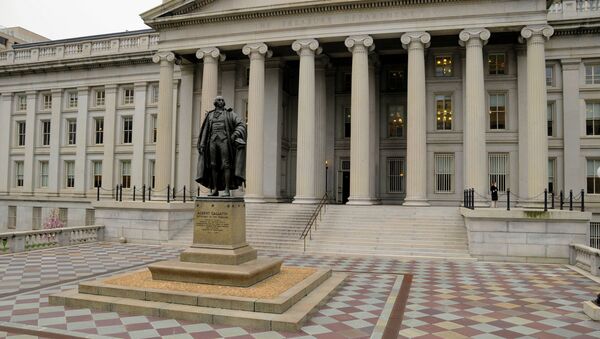Kristian Rouz — US benchmark bond securities, the Treasury notes, have rallied in value during past two months amidst the junk bond crash and oil price and stock carnage, effectively suppressing the yield to just above 2% in January and stirring investors' concerns that the real economy expansion might be out of steam. Although lower bond yields indicate greater economic stability and investment appeal, the inflowing capital seeking safe havens is more likely to avoid the real economy, ending up in lower-yielding, albeit more stable securities. Stock market pessimism only bucks the trend, with the market focusing on US consumption data as the main driver of economic growth.
Benchmark 10-year US Treasury notes are yielding 2.07%, after five consecutive days of gains in value.
"The American economy has lost its animal spirits," said Hideaki Kuriki of Tokyo-based Sumitomo Mitsui Trust Asset Management. "The potential growth rate of the American economy is going down. [In the] Longer term, yields may go down."
The decline in yield was not least caused by the slump in oil prices after international sanctions against Iran were lifted last week. Consequently, US inflation expectations suffered, with investors raising bets on the Federal Reserve abstaining from tightening the monetary environment.
At the moment, the 10-year yield is, albeit rather low (at 2%), still above the shorter-tenor debt. That said, at least a US recession is very unlikely.
According to BNP estimates, the longer-term yield is poised to rise to 2.75% by late 2016, driven mainly by US consumption spurring the overall economy.
It should also be kept in mind that US yields do not always correctly reflect the situation in the domestic economy, as the treasury's value and yields are also affected by international demand. In other words, even though the US economy is outpacing the longer-term yield, the economic gloom overseas stirs a greater international demand for US debt. Consequently, the yield drops, while the overall US economy does not.
Preliminary estimates put the pace of US growth at 2.4% throughout 2015, and it is likely to stay at the same level in 2016.






